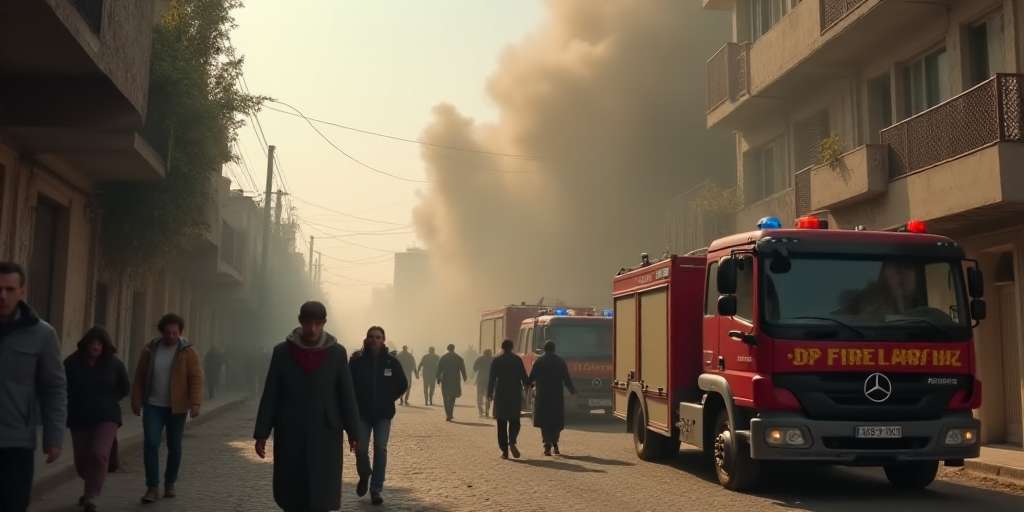Background on Key Figures and Relevance
Benjamin Netanyahu, the Prime Minister of Israel, has been at the helm during a significant period in Middle Eastern politics. His leadership is crucial as Israel navigates complex security challenges, including the ongoing conflict with Palestinian factions in Gaza. The recent intensification of the military offensive in Gaza City underscores his role in shaping Israel’s response to security threats.
Key Developments and Actions
- Negotiations for Hostage Release: Netanyahu has ordered the initiation of talks to secure the release of Israeli hostages held in Gaza, following a new truce proposal from Egypt, Qatar, and the United States.
- Military Buildup: The Israeli military plans to mobilize an additional 60,000 reserve soldiers, escalating concerns over the already dire humanitarian situation in Gaza.
- Preparations for Gaza Takeover: Israel is preparing to take military control of Gaza City and adjacent refugee camps, aiming to disarm Hamas and secure the release of remaining hostages.
- Humanitarian Concerns: The Gaza Health Ministry, controlled by Hamas, has rejected Israel’s demands for operating spaces within Gaza, citing the potential to further weaken an already devastated healthcare system.
“More Deaths”
For over a week, Gaza City and other urban areas in the northern Gaza Strip have endured intense bombardments from Israeli aircraft and artillery.
- Living Under Fire: Residents describe relentless explosions, combat aircraft, and the constant presence of ambulances and cries for help, causing immense psychological strain.
- Security Cabinet Authorization: Netanyahu’s security cabinet authorized a military plan in early August to seize Gaza City, adjacent refugee camps, and assert control over the entire Gaza Strip.
- Hostage Situation: Forty-nine hostages remain captive in Gaza, with 27 confirmed dead since the conflict’s onset. These individuals were part of a larger group of 251 Israelis abducted by Hamas on October 7, 2023, sparking the current crisis.
- Humanitarian Crisis: Israel’s ongoing blockade and military operations have resulted in tens of thousands of deaths and a severe humanitarian disaster within Gaza.
- Fatalities Reported: At least 48 people died on Thursday due to Israeli attacks across Gaza, including a deadly bombing in Gaza City.
“Sabotaging the Agreement”
Hamas, which accepted the current ceasefire proposal, criticizes Israel for disregarding mediators’ efforts.
- Netanyahu’s Stance: Hamas accuses Netanyahu of being the primary obstacle to peace and showing indifference towards the lives of Israeli hostages.
- Previous Proposals: The current proposal is based on a previous plan by U.S. envoy Steve Witkoff, which Israel had previously approved.
- Two-Phase Liberation: The plan involves the release of ten live hostages and the remains of 18 deceased individuals in exchange for a 60-day truce and negotiations to end the war. Remaining hostages would be freed in a subsequent phase.
- Family Outrage: Families of Israeli hostages express frustration, claiming that Netanyahu’s office is actively undermining a potential agreement that could save their loved ones’ lives.
Key Questions and Answers
- Q: Who is Benjamin Netanyahu, and why is he relevant in this situation?
A: Benjamin Netanyahu is the Prime Minister of Israel. His leadership and decisions significantly impact Israel’s response to security challenges, including the ongoing conflict with Palestinian factions in Gaza. - Q: What is the current truce proposal, and who are the mediators?
A: The current truce proposal involves a 60-day ceasefire, the release of hostages in two phases, and negotiations to end the conflict. The mediators are Egypt, Qatar, and the United States. - Q: How has the conflict affected the humanitarian situation in Gaza?
A: The ongoing conflict, coupled with Israel’s blockade and military operations, has resulted in a severe humanitarian crisis in Gaza, with tens of thousands of deaths and widespread destruction. - Q: What is Hamas’ position on the truce proposal?
A: Despite accepting the truce proposal, Hamas criticizes Israel for disregarding mediators’ efforts and being the primary obstacle to peace.






